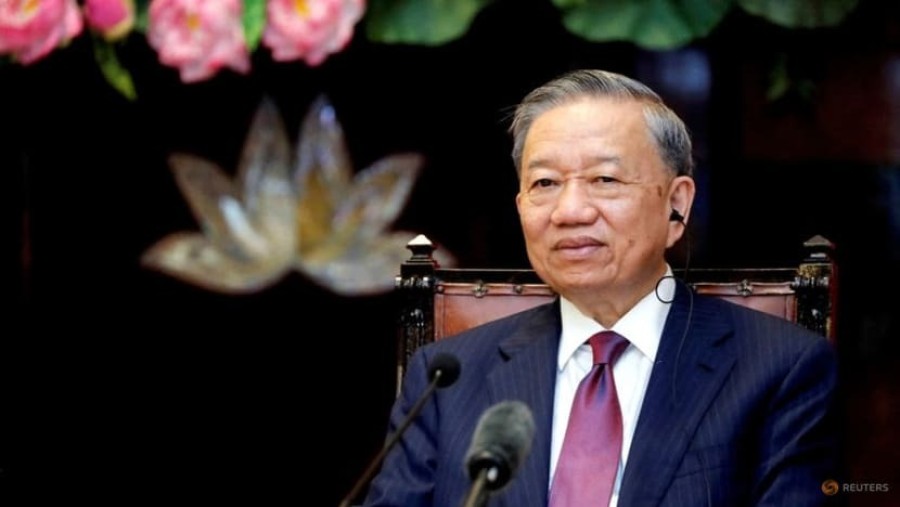Vietnam President to Lam Takes Top Job as Communist Party Chief

Vietnamese President To Lam was named general secretary of the Communist Party of Vietnam, the nation's top position, on Saturday (Aug 3), replacing Nguyen Phu Trong, who died two weeks ago. Lam, 67, had temporarily taken over the duties of party chief on Jul 18, a day before Trong's death as his health was deteriorating.
Party delegates unanimously supported Lam's nomination, officials told a press conference.
Addressing the delegates, he vowed to inherit and promote Trong's legacy, make no changes to the Southeast Asian nation's foreign policy, focus on achieving its socio-economic development goals and and continue Vietnam's anti-graft campaign.
"In the coming time, the work on anti-corruption will be continued fiercely," Lam told the press conference. "Personally I feel fortunate that I have much experience in handling anti-graft campaign during the time I worked at the police ministry."
Lam, a career security officer, had been seen as long aiming to become party chief, with experts calling the presidency a stepping stone for the top job.
It was not immediately clear whether he would keep both top jobs until the end of this legislative session in 2026, or whether a new president would be chosen.
He was elected president in May after leading a sweeping campaign of high-profile investigations against corruption as police minister. He replaced Vo Van Thuong, who had been in the job about a year when he quit amid accusations of unspecified wrongdoing.
Multiple officials and diplomats said the party had discussed possibly naming a new president so that Lam could focus on the party chief job. Discussions may still be under way, one diplomat said on Saturday.
If Lam keeps wearing both hats, he may boost his powers and possibly lead the country to a more autocratic style of leadership, officials have said, similar to that of Xi Jinping, who is China's party chief and state president.
That would be a change for Vietnam, which, unlike its far larger neighbour, has engaged in more collective decision-making, with leaders subject to multiple checks.
It would not, however, be unprecedented. Trong held both top jobs for nearly three years until April 2021 after the death of a former president.
